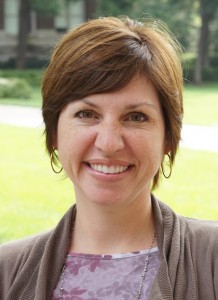By Erin Dennis
Have you ever wondered how many researchers at the University of Minnesota specialize in the areas of genomics, linguistics or plant pathology? Or what journal articles one of your colleagues has published or grants she has received?
Questions?
If you have questions about Experts @ Minnesota contact Kate McCready at 612-626-4357 or mccre008@umn.edu.
The university-wide online database, Experts@Minnesota, provides answers to these questions and many more, offering an inside track into the depth and breadth of expertise at the U of M.
Launched a little over a year ago, Experts@Minnesota is a joint project of the Office of the Vice President for Research, University of Minnesota Libraries, and 11 colleges at the U of M. Public directory information on approximately 4,200 university faculty is matched with data from the Scopus and SciVal databases to create a comprehensive listing of the faculty and expertise on campus, highlighting the many areas of research at the U.
Information in the database is organized by academic unit or field, though a robust search function allows users to find information quickly by topic, faculty name, or any other relevant search term. Unique visualization tools show research trends in specific areas and map connections among researchers based on their publications.
Opportunities in your inbox
The database is open to the public and can be used as a tool for businesses, the media and other external audiences who are interested in identifying experts in particular fields or acquiring general data on research at the U.
However, according to Kate McCready, special projects librarian for University Libraries and project manager for Experts@Minnesota, the primary purpose of the database is for researchers to make connections between themselves and other scholars and to help them identify financial resources that cut across different disciplines.
“Funding for academic research is increasingly tied to interdisciplinary and collaborative projects, but researchers often experience challenges when it comes to finding the right people to work with. Experts@Minnesota is designed to facilitate these connections and link researchers to relevant funding opportunities.”
Individual faculty can receive email alerts about new funding opportunities, on an ongoing basis, based on their profile information and customizable descriptions of research interests. Right now approximately 2,900 of the faculty currently profiled have funding opportunities pushed to them.
What faculty are saying
Faculty members at the University of Minnesota who are using Experts@Minnesota say it’s a great tool to ID potential collaborators on campus and beyond. In fact, Experts is getting used a lot by researchers and others around the world. You might be surprised to hear that nearly 57,000 people visited experts.umn.edu between March and June. Perhaps more surprising: Nearly 39 percent of visitors are from outside the United States.
“I like it because it connects me with other University of Minnesota faculty who are working in similar areas,” said Ken C. Winters, PhD, Professor of Psychiatry in the Medical School.
Tom Hays, Associate Dean of Research in the College of Biological Sciences, says that if one group of faculty successfully leverages Experts to win a grant, “it would cover the cost of the tool.” He added that Experts@Minnesota has great potential to link faculty from life sciences to those in natural sciences and engineering sciences. “I would strongly encourage faculty to take a look at (Experts) and see that we have experts across the campus.”
Both Winters and Hays also have used Experts to locate and invite Minnesota faculty to guest lectures led by visiting professors with similar research portfolios.
Improving functionality and accuracy
There are some limitations to the database, however. Despite being the world’s largest abstract and citation database of peer-reviewed literature, Scopus focuses primarily on journals in the scientific and medical field, so it is less representative of the arts and humanities. Also, the database only indexes journal articles, so books, book chapters, collections of essays and art exhibitions and performances are not initially included, though they can be added in.
“We are trying to fill in the gaps where we can by helping faculty to update their profiles with more accurate and current information,” said McCready. So far, the University Libraries staff have added more than 18,000 citations to the profiles of faculty members in the College of Design and the College of Liberal Arts.
During the first year of implementation, McCready and others on the project team spent a lot of time talking with faculty and fixing glitches with the database, including working with the vendor to improve data accuracy and functionality. She also created a Frequently Asked Questions page that includes helpful video tutorials showing faculty how to do things like update their profiles and find collaborators.
Now, McCready and her team are getting ready to roll out a campaign to increase participation among faculty and encourage its use more broadly among university community members and other stakeholders. In addition to its value for faculty, McCready sees opportunities to align the database with other university resources, such as UDATA and UMN Profiles, to minimize duplication and improve information sharing across departments and units.
“Based on our web analytics, we know that the site is getting a lot of traffic, which is great,” said McCready. “But we want to better understand how all of our audiences are using it and the value that they’re getting.”
For questions about Experts @ Minnesota contact Kate McCready at 612-626-4357 or mccre008@umn.edu.
Erin Dennis is managing editor for the University of Minnesota Office of the Vice President for Research. She oversees content strategy for the Office’s Web and print publications. Reprinted from the OVPR Research Blog. (Note: Mark Engebretson contributed to this article.)





